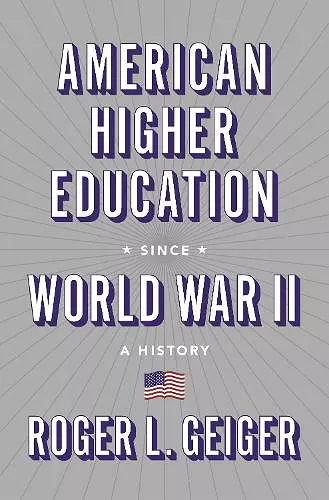American Higher Education since World War II
A History
Format:Paperback
Publisher:Princeton University Press
Published:22nd Jun '21
Should be back in stock very soon

This book offers a comprehensive examination of the transformation of American higher education post-World War II, exploring key developments like the GI Bill, desegregation, and the rise of research universities.
American Higher Education since World War II by Roger Geiger offers a comprehensive examination of the significant changes that have shaped American colleges and universities in the years following World War II. The book explores how the surge in government and social support, coupled with a dramatic increase in student enrollments, transformed the role of higher education in society. Geiger takes readers through pivotal moments, such as the implementation of the GI Bill and the subsequent expansion of educational opportunities.
As the narrative unfolds, Geiger delves into the social upheavals of the 1960s and 1970s, touching on key developments like desegregation and the introduction of coeducation. These changes not only redefined access to higher education but also influenced the structure and mission of institutions across the nation. The author emphasizes that the growth of higher education has been a defining characteristic since the war, yet each generation has pursued this growth for distinct reasons, reflecting broader societal shifts.
The book provides valuable context for understanding the contemporary challenges faced by American higher education, including rising inequality, increasing tuition costs, and concerns about student preparedness and educational standards. Geiger's insightful analysis serves as a foundation for readers to grasp the complexities of the current educational landscape, making it an essential resource for anyone interested in the evolution of higher education in the United States.
ISBN: 9780691216928
Dimensions: unknown
Weight: unknown
400 pages